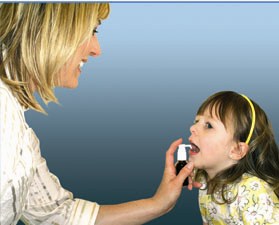 In honor of the upcoming World Autism Awareness Day on April 2, I wanted to share some information regarding autism spectrum disorders (ASD) and food allergies.
In honor of the upcoming World Autism Awareness Day on April 2, I wanted to share some information regarding autism spectrum disorders (ASD) and food allergies.
General Information:
IgE-mediated allergic diseases (e.g., allergic rhinoconjunctivitis, atopic asthma and food allergy) are among the most common chronic conditions worldwide, and are continuing to rise each year. In addition to easily recognized symptoms, such as a runny nose, itchy eyes, sneezing and coughing, allergic diseases can cause neuropsychiatric symptoms, such as irritability and hyperactivity, in otherwise healthy individuals. This is also likely to occur in children with autism spectrum disorders (ASD). Moreover, the discomfort and pain associated with allergic diseases could aggravate behavioral symptoms in ASD children. [1] This may be due the child’s inability to communicate or fully understand or explain his or her discomfort.
Allergy Testing:
Autism spectrum disorder children are known to suffer from additional issues, with gastrointestinal (GI) and sleep disorders being the most common. It may be useful to test for food allergies to confirm or rule out allergies as a cause for GI issues. Allergy testing can be done by skin testing or blood work. Many times these tests indicate that children do, in fact, have true allergic responses to foods. Other times, the tests come back “negative” for food allergies.
Allergy Treatment:
If a patient tests positive for food allergies, they can be treated with sublingual immunotherapy (allergy drops), by avoiding the allergy-inducing foods altogether, or a combination of both.
For more information about World Autism Awareness Day, please go to: https://www.autismspeaks.org/. Wear blue on April 2 to show your support of the Light It Up Blue national campaign.
[1] http://www.medscape.com/viewarticle/721702_1


 In honor of the upcoming World Autism Awareness Day on April 2, I wanted to share some information regarding autism spectrum disorders (ASD) and food allergies.
In honor of the upcoming World Autism Awareness Day on April 2, I wanted to share some information regarding autism spectrum disorders (ASD) and food allergies. I read a great blog post a few days ago, written by a guest blogger for FARE (Food Allergy Research & Education). The blog post was written to encourage others to participate in Fare’s Food Allergy Heroes Walk. The take-home message for me was simple- Create Awareness.
I read a great blog post a few days ago, written by a guest blogger for FARE (Food Allergy Research & Education). The blog post was written to encourage others to participate in Fare’s Food Allergy Heroes Walk. The take-home message for me was simple- Create Awareness.